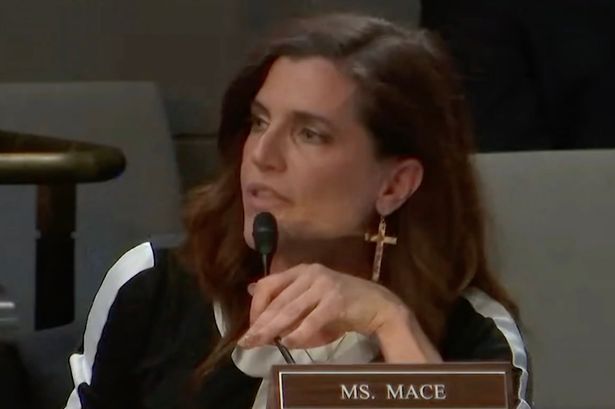The hallowed halls of the United States House of Representatives, typically a stage for impassioned debates and carefully crafted legislation, recently witnessed a spectacle more reminiscent of a barroom brawl than a deliberative body. The catalyst for this unusual display was the contentious speakership battle, a political tug-of-war that exposed deep fissures within the Republican Party and paralyzed the House’s ability to function. The extraordinarily protracted and acrimonious election process, culminating in a record 15 voting rounds, saw Kevin McCarthy finally grasp the gavel, but not before enduring public humiliation and making concessions that significantly weakened his position. This unprecedented display of political dysfunction, marked by near-physical altercations and open hostility between members, served as a stark reminder of the increasing polarization and tribalism gripping American politics.
The near-fisticuffs, most notably the dramatic almost-physical confrontation between Mike Rogers and Matt Gaetz, encapsulated the simmering tensions that had been building throughout the grueling speakership election. Rogers, a staunch McCarthy supporter, was visibly enraged by Gaetz’s last-minute refusal to vote for McCarthy, a move that temporarily derailed McCarthy’s ascent and further prolonged the chaotic proceedings. The image of Rogers, face contorted in anger, being physically restrained from confronting Gaetz became an instantly iconic representation of the deep divisions within the Republican Party. This near-violent outburst underscored not only the personal animosity between members but also the broader ideological rifts that have fractured the party and hampered its ability to govern effectively.
The protracted speakership battle, far more than a simple procedural hurdle, laid bare the profound challenges facing the Republican Party. The internal struggle exposed a growing divide between the establishment wing of the party, represented by McCarthy and his allies, and a more hardline, anti-establishment faction personified by figures like Gaetz. This internal conflict reflects a broader national trend of increasing polarization and the rise of populist, often disruptive, political movements. The concessions McCarthy made to secure the speakership, including weakening the power of the speaker’s office and granting more influence to the hardline faction, raise concerns about the future direction of the Republican Party and its ability to govern responsibly. These concessions could potentially empower the more extreme elements within the party and make it even more difficult to find common ground on critical issues facing the nation.
Beyond the immediate political drama, the chaotic speakership battle raises serious questions about the health of American democracy. The dysfunction and gridlock witnessed in the House of Representatives reflect a broader trend of political polarization and erosion of trust in institutions. The inability of elected officials to compromise and work together effectively undermines the very foundation of democratic governance. The spectacle of near-physical altercations and open hostility on the House floor sends a disturbing message to the American public and erodes faith in the ability of government to address the nation’s challenges. The prolonged stalemate also highlighted the vulnerability of American democracy to internal divisions and the potential for political instability.
The concessions McCarthy made to secure the speakership, while necessary to break the impasse, could have significant long-term consequences for the functioning of the House and the broader political landscape. By weakening the power of the speaker’s office and empowering the more extreme members of his party, McCarthy has potentially created a more volatile and unpredictable political environment. These concessions could lead to increased legislative gridlock, further polarization, and a greater difficulty in addressing pressing national issues. The empowerment of the hardline faction could also embolden more extreme political rhetoric and actions, potentially further exacerbating the already tense political climate. This raises concerns about the future of bipartisan cooperation and the ability of Congress to effectively govern.
The chaotic speakership battle serves as a cautionary tale about the dangers of political extremism and the fragility of democratic institutions. The near-fisticuffs and unprecedented political dysfunction on display in the House of Representatives underscore the urgent need for political leaders to prioritize compromise, civility, and respect for democratic norms. The events surrounding the speakership election should serve as a wake-up call for the American public and a reminder of the importance of engaging in constructive political dialogue and holding elected officials accountable for their actions. The future of American democracy depends on the ability of its citizens and their representatives to work together to overcome these challenges and build a more unified and functional political system. The chaotic scenes witnessed in the House are a stark reminder that the “best of the most bizarre” in American politics can have profoundly serious consequences.














